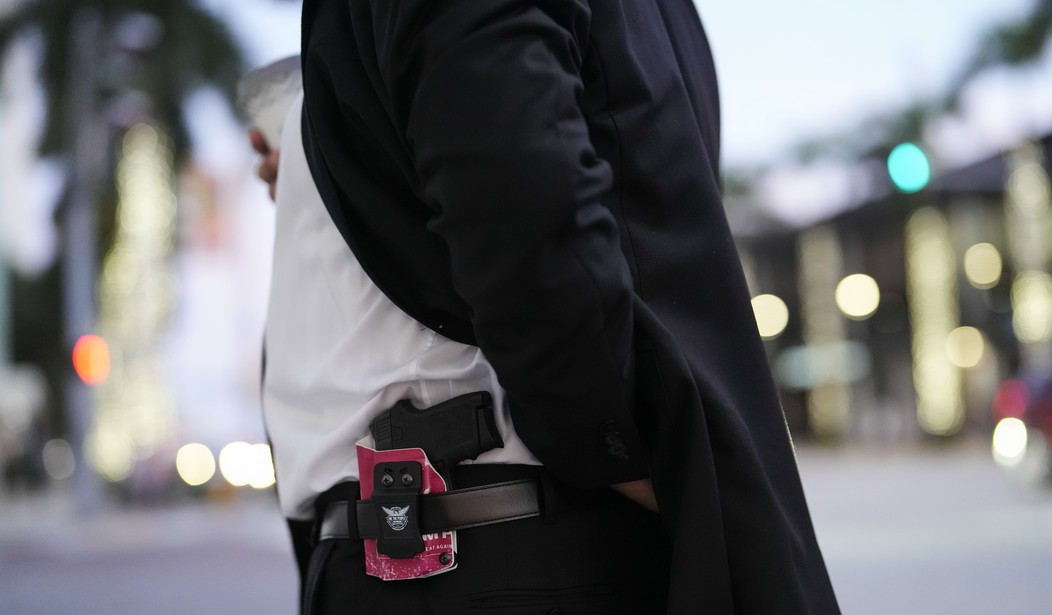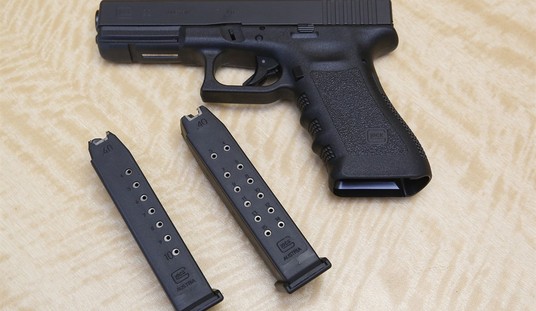Hypothetically, all of the rights protected by the Bill of Rights are equal. They all should be treated as the same, and we shouldn't have to worry about those rights being tread upon when we leave our hometown or state.
But the Second Amendment is treated as a second-class right. That's why national reciprocity is important, and there are some dumb arguments against it.
Normally, they come from the anti-gun side. However, Kevin D. Williamson, whom I generally respect, offered up his own critique of national reciprocity, and I found it to possibly be dumber than the anti-gun arguments.
I myself do not care for the bill, inasmuch as I understand that the states are meaningful sovereign entities and not to be treated as subdivisions of the federal government. Federalism means that New Jersey and Connecticut are allowed to make a lot of stupid decisions, if the voters want. It is true that the right to keep and bear arms is right there in the Bill of Rights, but so is free speech—and that doesn’t mean that Oklahoma can issue parade permits that have to be honored in California.
Stay with me on the free-speech parallel for moment: It is not the case that every regulatory approach to local free-speech issues (such as requiring parade and rally permits, regulating billboards, or using zoning laws to quarantine what is euphemistically known as “adult” entertainment) is consistent with the First Amendment, but it is the case that there are at least several regulatory approaches to speech issues that are consistent with the First Amendment. A national right to free speech does not preclude the legitimacy of local variation in regulation touching speech issues. The same holds true for Second Amendment rights: There are regulatory regimes in certain U.S. jurisdictions that should (and likely will) be thrown out in coming years as incompatible with the Second Amendment, but that does not mean that there can be no legitimate variation. There are places in this country where having a good rifle within easy reach remains prudent, but the Las Vegas Strip and the New York City subway system are not among them. Baggs, Wyoming, isn’t Chicago. People in Brooklyn have Second Amendment rights, but there is no reason that the local legal environment need be identical to, or even consistent with, that of Elko, Nevada, in every jot and tittle.
The federal government should follow the maxim: When it is not necessary to act, it is necessary not to act.
Now, Williamson goes on to note that most states these days have constitutional carry, which means no one needs a permit--that's a fair argument, to a point--and that other states have worked out their own reciprocity agreements. This, he apparently believes, makes a national law on the subject unneeded.
Except, he's wrong.
Let's use his First Amendment parallel for a moment.
No, my home state of Georgia cannot issue me a parade permit for Montgomery, Alabama or anywhere else outside of my hometown. However, I don't need it to. I can travel to the other town and apply for that parade permit. It can generally be denied only if there's a conflict or under other objective criteria. My free speech rights apply equally, and I can exercise them in all 50 states.
But gun rights don't get that treatment.
If I travel to California, not only does a Georgia permit mean nothing, but up until recently, I couldn't even apply for a permit. As it stands, while there are states that have non-resident permits, the practicality of getting one means you're just not. New York, for example, requires you to attend a face-to-face meeting before your application is approved, which takes a prolonged period of time to issue.
I can't get someone local to get a permit for me, like I could with a parade permit or something. I can't do anything except suffer.
As noted earlier, the Second Amendment is treated like a second-class right. It doesn't get the same presumptions the rest of the Bill of Rights gets. It's routinely trampled on, and that has largely continued. Arguing that most states have constitutional carry and others have reciprocity agreements ignores the fact that there are a handful of states where non-resident carry is largely impossible in any practical way for most people who might visit.
Which is where national reciprocity comes into play.
Williamson is normally pretty sharp, but this is a ridiculously stupid argument against national reciprocity.







